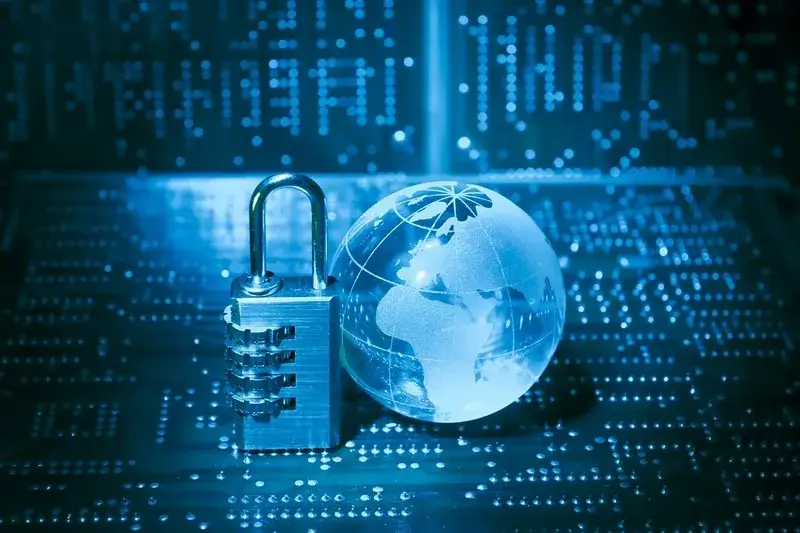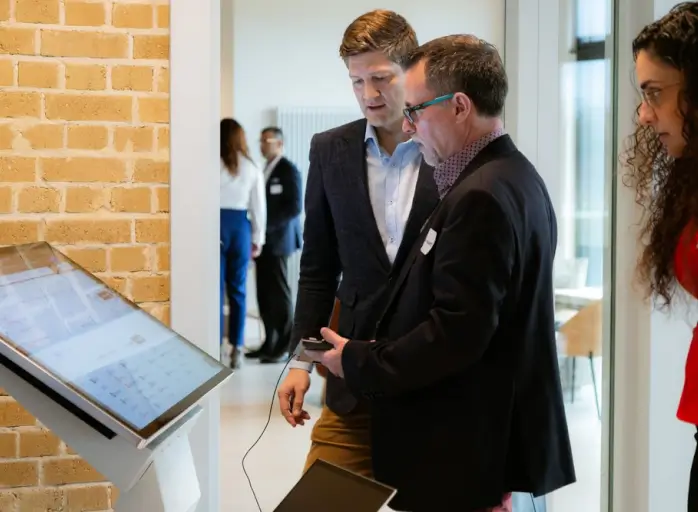

Assess your cybersecurity maturity
The Luxembourg Digital Innovation Hub (L-DIH) helps companies gain a clear understanding of the cybersecurity risks they face – and provides tailored solutions to protect against them.
 Jean-Michel Gaudron
Jean-Michel Gaudron
In today’s hyperconnected economy, cybersecurity has become a pressing concern for businesses of every size and sector. The increasing digitalisation of operations, supply chains and customer interactions has introduced new vulnerabilities that can no longer be overlooked.
From small startups to major manufacturers, organisations are now more exposed than ever to cyber threats capable of compromising sensitive data, disrupting operations and damaging reputations.
Cybersecurity is not just about technology. Anitha Arulrajakumar, NC3
Yet despite these challenges, cybersecurity often remains neglected, with many organisations unsure where to begin. Without a clear picture of their own maturity level, it becomes difficult to prioritise investments or design an effective protection strategy. This is precisely where structured assessment tools prove invaluable.
The Luxembourg Digital Innovation Hub (L-DIH) plays a pivotal role in guiding companies through complex cybersecurity challenges. As part of its mission, L-DIH offers a comprehensive cybersecurity maturity assessment, enabling companies to evaluate their current position and plan meaningful improvements.
A practical approach
Developed in collaboration with the Luxembourg House of Cybersecurity, the cybersecurity maturity assessment offers companies a simple, pragmatic way to gain real insight into their security posture. The process is based on an online self-assessment questionnaire, the NC3 OTSecurityCheck, which takes around an hour to complete and typically involves up to two people within the organisation.
Promoting proactive risk management at every level of the company. Mickaël Desloges, Luxinnovation
The questionnaire covers various aspects of cybersecurity, including infrastructure, policies, employee awareness and incident response. Upon completion, companies receive a detailed report outlining their main strengths and weaknesses, alongside personalised recommendations for improvement and support services aligned with their strategic objectives.
“Cybersecurity is not just about technology. However, our data shows a widespread and concerning trend: companies are prioritising advanced security products while overlooking the most important element of their defence – their employees,” explains Anitha Arulrajakumar, cybersecurity expert at National Cybersecurity Competence Center (NC3). “With the human factor at the heart of most cyberattacks, no system – however sophisticated – will succeed without properly trained staff. Our approach is practice-oriented: through targeted training and stress testing (ROOM#42), we help teams respond effectively to cyber threats and strengthen organisational resilience,” she adds.
From evaluation to action
Understanding the current level of cyber maturity is, of course, only the first step. Based on the self-assessment results, L-DIH supports companies in developing a personalised roadmap to enhance their cybersecurity posture over time. This includes regular follow-ups to monitor progress and adjust recommendations as the organisation evolves.
“The goal is not only to identify vulnerabilities, but also to help build a true security culture by promoting proactive risk management at every level of the company,” adds Mickaël Desloges, Senior Advisor for Digital Transformation at Luxinnovation.







